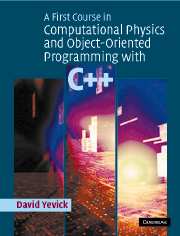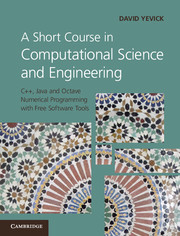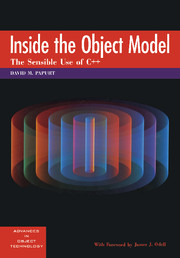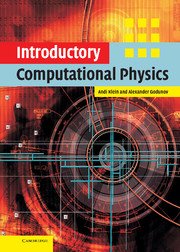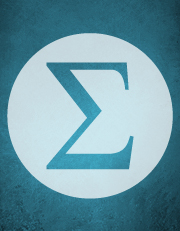A First Course in Computational Physics and Object-Oriented Programming with C++ Hardback with CD-ROM
C++ is rapidly becoming the programming language of choice for science and engineering applications because of its rich object-oriented features. Intended for beginning and intermediate programmers, this book surveys the application of C++ to technical problems. Modern object-oriented software engineering tools are employed to simplify the presentation and all aspects of modern C++ programming practices of relevance to scientific programming are surveyed.
- Comprehensive presentation of all C++ language features of relevance to scientific programming
- Many innovatively structured scientific programming problems cover all standard examples
- Features material from a wide range of topics in object oriented and scientific programming not found elsewhere
- Well supported: free programming and graphics tool included on CD in book, solutions to exercises available from [email protected]
Reviews & endorsements
"A great first programming book for computational science courses, as well as a solid resource for experienced scientific programmers."
>Choice
"Physical Science and engineering students who are either very diligent or have some background in programming could learn C++ very well from Yeveck's text."
Jan Tobochnik, Physics Today
"The best feature of the book is its good and concise description of the C++ language. The book would be a good fit for instructors who prefer to teach programming in detail. This would be the ideal text for the student who is considering a career in scientific programming, and wants to learn C++ very proficiently."
American Journal of Physics
"The book covers a reasonably broad range of topics, including brief discussion of computer and software structure, object-oriented programming..."
David P. Maroun for Physics in Canada
Product details
April 2005Mixed media product
9780521827782
414 pages
253 × 195 × 26 mm
1.2kg
4 tables
Unavailable - out of print January 2017
Table of Contents
- Part I. Basic C++ Programming:
- 1. Introduction
- 2. Installing and running the Dev-C++ programming environment
- 3. Introduction to computer and software architecture
- 4. Fundamental concepts
- 5. Writing a first program
- 6. An introduction to object-oriented analysis
- 7. C++ object-oriented programming syntax
- 8. Control logic and iteration
- 9. Basic function properties
- 10. Arrays and matrices
- 11. Input and output streams
- Part II. Numerical Analysis:
- 12. Numerical error analysis - derivatives
- 13. Integration
- 14. Root finding procedures
- 15. Differential equations
- 16. Linear algebra
- Part III. Pointers, References and Dynamic Memory Allocation:
- 17. References
- 18. Pointers and dynamic memory allocation
- 19. Advanced memory management
- 20. The static keyword, multiple and virtual inheritance, templates and the STL library
- 21. Program optimization in C++
- Part IV. Advanced Numerical Examples:
- 22. Monte-Carlo methods
- 23. Parabolic partial differential equation solvers
- Part V. Appendices: Appendix A. Overview of MATLAB
- Appendix B. The Borland C++ compiler
- Appendix C. The Linux/Windows g++ compiler and profiler
- Appendix D. Calling FORTRAN programs from C++
- Appendix E. C++ coding standard
- References.

